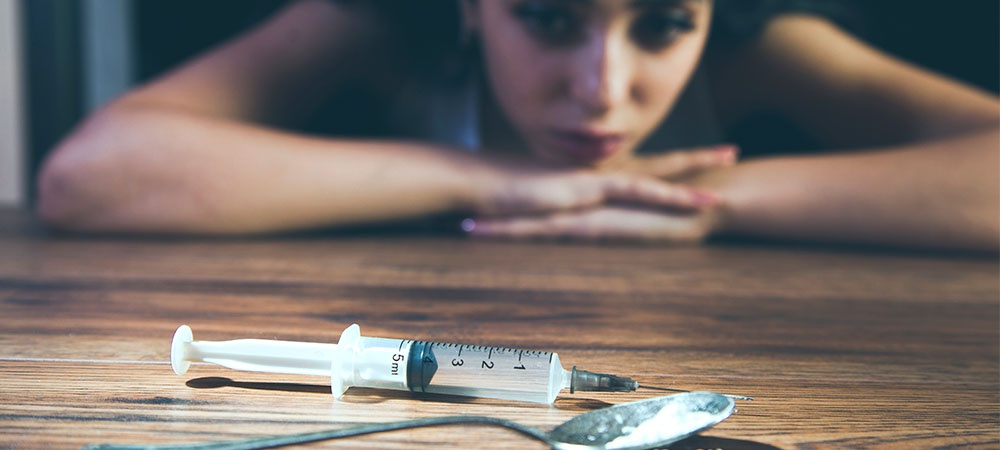One of the vital variables of contemporary health care is prescription drugs. These medications are helpful in the treatment or management of a wide range of diseases, from infections to pain and mental health disorders. Unfortunately, some people develop an addiction to these drugs and, as such, require prescription medication detox.
For several reasons, pharmaceuticals have a high potential for misuse. But one of the top ones includes the ability of these common drugs to mimic the effects of recreational substances such as alcohol, heroin, or cocaine. As a result, prescription drug abusers face a high chance of becoming addicted to the drugs if they use them recreationally.
Prescription drugs that frequently feature in the addiction conversation include Zolpidem, Dextromethorphan, Carisoprodol, and Barbiturates. But, regardless of how addicted you or a loved one are to prescription drugs, you can come out of it. In fact, you’ve taken the first step by deciding to read this article.
Here, we’ll take you through what detox treatment for prescription drug addiction entails.
Overview of Prescription Drug Misuse
Prescription drug addiction in Canada has been on the rise. This surge is despite the sensitization that people are to follow doctors’ orders and take the pills exactly as prescribed.
The cause of this spike in abuse isn’t apparent. But several variables appear to be contributing to it.
Contributing factors include the easier accessibility of drugs via virtual pharmacies. Another reason is the misconception that prescription medications are less risky than illicit ones.
You may be one of the many people addicted to prescription medications. But don’t feel devastated about it. Help is available through prescription medication detox.
What Happens During a Prescription Medication Detox Program?
The first step in halting the cycle of prescription medication is undergoing detox. Detoxification (detox) is the act of purging the body of harmful substances. In other parts, we’ll take you through what to expect from prescription drug detox.
Detoxification can take anywhere from a few days to a few weeks, depending on the substance in question. However, some factors may make it take longer.
Patients addicted to drugs are frequently encouraged to enter an intensive medical drug detox program in a medically supervised facility. This need is to avoid or address potential hazards associated with the withdrawal process.
Withdrawal from sedative prescription medications can notably cause life-threatening seizures in people hooked to them. This possibility makes it crucial that prescription drug addicts undergo detoxification from addiction under medical supervision.
Detoxification is usually easier when you use medically assisted methods. In a medically supervised facility, the following is a guide to what to expect during prescription medication detox:
Slowly weaning people off their drug of choice
A progressive decrease in dosage is necessary to help the brain adjust to the lack of a specific medication. Withdrawing patients can be kept safer and more likely to finish the detox process if they use this method, which reduces the severity of their withdrawal symptoms. Drugs such as Benzodiazepines require gradual abstinence due to their fatal risks of seizures if abruptly discontinued.
Treatment using medication
Drug replacements (e.g., methadone and buprenorphine) and opioid antagonists (e.g., naltrexone and the naloxone component of Suboxone) that have traditionally been used in cases of illicit opiate dependency may aid those who are dependent on prescription opioids (e.g., heroin addiction).
Substitutes for opioids have a lower potency, but they have a longer-lasting impact. In addition, they can significantly lessen the feelings of withdrawal and drug appetite in patients through a detoxification procedure.
Opioid addiction can induce a high, which full or partial antagonist drugs can prevent. Additionally, these therapeutic interventions help avoid drug-related compulsive behaviour.
Treatment of Withdrawal Symptoms by Medical Specialists
The medications (e.g., clonidine, anxiolytics, neuroleptics, etc.) and monitoring provided by nurses and physicians in medically supervised detox programmes help alleviate specific physical and psychological symptoms of withdrawal.
However, it’s crucial to stress that undergoing detox procedures for prescription drug addiction is just the beginning of the road to long-term sobriety. The best way to break the addictive cycle of drug addiction is to participate in a rehabilitation programme. Such programmes include both behavioural and medication-based treatment.
Related Article: What to Drink to Detox Your Body From Drugs

Possible Symptoms to Expect During Prescription Medication Detox
Misusing prescription medications such as sedatives, painkillers, and stimulants will often result in addiction.
The body adapts to the presence of certain medications after frequent exposure. Therefore, abruptly quitting their usage can induce a variety of symptoms. And some of these reactions can be lethal.
As a result, the intensity of the withdrawal symptoms may vary depending on the following factors:
- The drug of choice.
- The user’s emotional and physical well-being.
- How much of the medicine is being misused.
- Duration of abuse.
Prescription medication withdrawal symptoms vary from drug to drug. See the following:
- Withdrawal from stimulants addiction is often accompanied by more psychological than physical effects.
- The physical symptoms include sleeplessness, exhaustion, and an increased desire to eat.
- In contrast, opioid withdrawal can produce severe physical discomfort and flu-like symptoms, including sweating, puking, and gastrointestinal problems
- Muscle twitching, seizures, and convulsions can all occur due to the withdrawal process from sedatives.
In contrast to physical ones, mental and emotional symptoms of prescription medication withdrawal are more or less uniform across drug classes. Also, on average, withdrawal symptoms may last from a few weeks to a few months.
Withdrawal can cause a variety of emotional and mental issues. These include:
- Strong drug cravings.
- Dense Irritability
- Severe Anxiety
- Intense Agitation.
- Depression.
- Anhedonia is (the incapability of experiencing regular life pleasures).
Psychotic symptoms are sometimes connected with withdrawal from specific drugs such as amphetamines. These psychological withdrawal symptoms may even evoke suicidal feelings and attempts in some situations.
When detoxing from prescription drug addiction, the intensity of the symptoms won’t only vary depending on the drug of abuse. It’ll also vary depending on the user’s health conditions (both physical and mental).

How Do You Know If You Need Addiction Help?
Prescription drug abusers sometimes have difficulty determining whether or not they are addicted to the substances they’re abusing. Many people who consume prescription medicines incorrectly assume that they’re less likely to get addicted since the drugs are lawfully prescribed and given by doctors and pharmacists.
The truth is that long-term prescription drug abuse can lead to several issues, including accidental overdose. In addition, it can be more terrible if these medications are mixed with alcohol and other drugs.
Such mixtures not only put addicts at risk of worse mental health disorders. They also risk switching to illicit drugs if prescription drugs become too expensive or unavailable.
Addiction treatment is the immediate resort as soon as anybody is experiencing symptoms of drug withdrawal or prescription drug addiction.
How Does Medically Supervised Detox Help?
Substance abuse treatment specialists often recommend a professional detox centre for those who have a drug addiction.
Stimulant and opioid withdrawal may be so taxing on the body and the mind that many people find it impossible to undergo the process on their own. In other words, the likelihood of lethal withdrawal symptoms makes medically supervised prescription medication detox quite essential.
Addiction-related mental health issues may make it difficult for a person to make a full recovery. However, detox professionals at a detox facility will assist patients in identifying and accessing treatment for co-occurring mental health issues, enhancing their chances of overcoming addiction.
Related Article: How To Detox From Drugs 2022

Summary
Due to the inevitable withdrawal symptoms, detoxing from prescription drug addiction shouldn’t be taken lightly. Therefore, only medical professionals in medical facilities can best supervise prescription medication detox.
It’s one thing to decide to enrol in a detox program. And it’s entirely different from selecting a facility that knows how to detox from prescription medication. Here at Medical Detox Ontario, you can leverage our track record of experience with prescription medication detox. Call us today to discuss detox treatment options.

